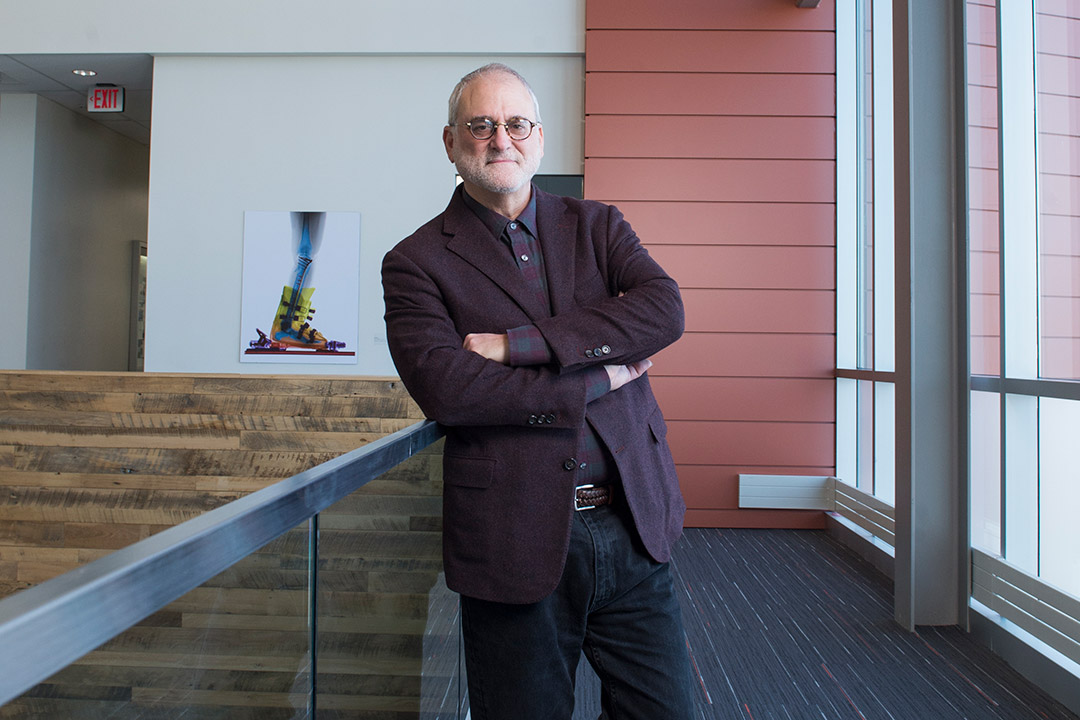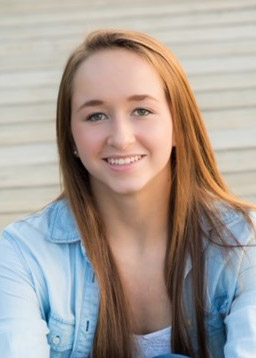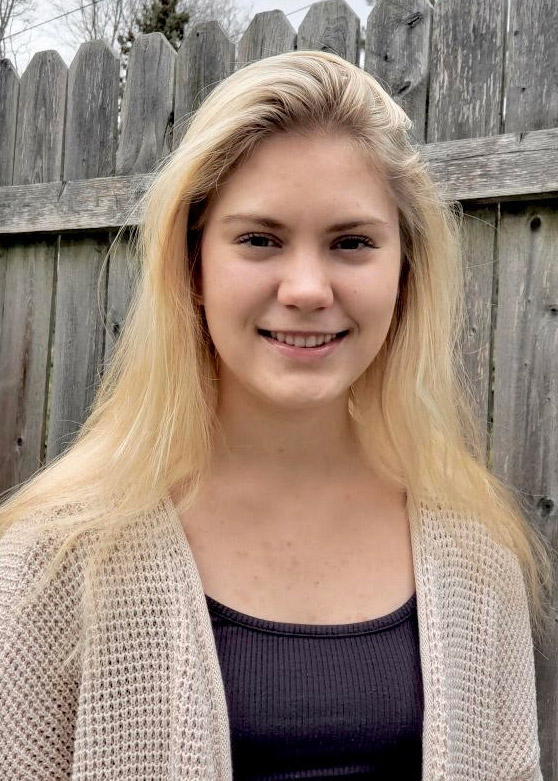RIT biomedical sciences students find healthy coping strategy in studying pandemic effects
Biagio Dell’Aiera
RIT research professor Dr. Laurence Sugarman made the coronavirus pandemic a topic of his class on the placebo effect.
When the coronavirus pandemic spread to the United States, Rochester Institute of Technology faculty member Dr. Laurence Sugarman asked his students to apply their knowledge of placebos and the power of suggestion to the unfolding health crisis.
Sugarman adjusted the syllabus for his course, Placebo, Suggestion, Research and Health, allowing students to refocus their research papers on the pandemic. Instead of applying placebo effects to a health condition of their choice, students could grapple with how placebo effects—perceptions, expectations, social interactions and psychological conditioning—influence our sense of wellbeing, sickness and recovery rates during the coronavirus pandemic.
“One of the basic theories of placebo research is that all health interventions induce placebo effects. The question is whether they do more,” said Sugarman, pediatrician, research professor and director of RIT’s Center for Applied Psychophysiology and Self-Regulation. “As soon as the pandemic hit, I offered the class an opportunity to dig into what we should be doing to maximize our immune response and our ability to cope.”
Half the class accepted his challenge, including Danielle Callard and Sophie Coulson, third-year biomedical sciences majors in the College of Health Sciences and Technology. They quickly switched research topics and began extrapolating placebo research to the pandemic.
Danielle Callard
Treating the pandemic as a real-time case study has made the class relevant for Callard, a Canandaigua, N.Y., resident.
“It keeps your mind busy and instead of looking at the pandemic as an end-of- the-world situation, it’s more of ‘Well, what can we do about this? How can we move forward and make this better?’” Callard said. “We’re putting meaning into what we’re learning. We’re not just learning the placebo effect; we’re applying it to the real world and seeing how it does affect us.”
Following social distancing and being hygienic and careful can relieve anxiety, even though the sense of safety might be due to conditioning, Callard noted.
Sugarman introduced his popular course Placebo, Suggestion, Research and Health eight years ago and, to his knowledge, it is the only undergraduate course of its kind in the United States. Many of his students are curious about the growing field of placebo research, and he understands why. “Placebo research gets at how our conditioning affect our biology and even our gene expression.”
A placebo is more than a sugar pill, or a shot used in a clinical trial as a baseline of comparison, Sugarman said. On its own terms a placebo reveals how thoughts and expectations can strengthen or weaken the immune system, making us susceptible to disease and secondary infections like pneumonia.
“Your mood, feelings, relationships and sense of confidence in the system affect how well a vaccine or an antiviral drug is going to work in an individual,” Sugarman said. “Placebo effects are evidence for how our relationships and our conditioning, and the stories we tell each other, have biological responses. Perception can tune our minds and immune system. How do we use that to our advantage during a pandemic of a respiratory virus?”
Sophie Coulson
The placebo effect draws on perceptions and personal frames of reference. “It is a combination of patient-caregiver interactions and positive expectations of things,” Coulson added. “It has a top-down effect, meaning you modulate it yourself.”
Coulson, from Little Falls, N.Y., recommends being wary but not overly fearful of catching the coronavirus. “I have been writing about how important it is to have a balanced outlook on it and for healthcare professionals to convey positive expectations when appropriate.”
The way you feel connected to your doctor has a big part in determining how you will do in the end, Coulson said. The protection healthcare workers need while treating infected patients can make this challenging. “I think COVID is unique because when doctors are interacting with patients they are usually in a huge amount of PPE (personal protective equipment) and you can’t really see their face, so it would be hard to connect.”
Daily images of overwhelmed medical personnel struggling to treat patients have only strengthened Coulson’s and Callard’s future plans. Both students intend to pursue medical school and careers on the health front.
“It’s confirmed what I want to do,” Coulson said. “That’s exactly what I want to do as a career, is to help out.”
Callard agreed that COVID-19 has confirmed her career goals. “It’s not pushing me away or scaring me. If anything, I’m more interested in infectious diseases,” she said. “This will be a big topic for many years. It will always affect us.”
Sugarman’s suggestion that his students outline a research-based standard of care during this pandemic was also intended as a healthy coping strategy for them.
“During times of heightened uncertainty, the most important thing is to do something meaningful and enduring, not just get by,” Sugarman said.















